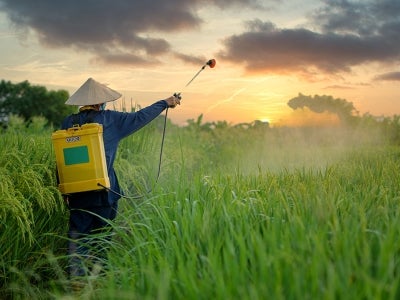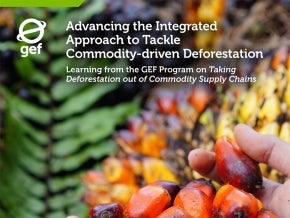
This year’s International Day of the World’s Indigenous Peoples offers a moment to reflect on how difficult the COVID-19 pandemic has been for indigenous peoples around the world and how much promise there is from ongoing initiatives to support and engage these communities who have much to teach the world about resilience, traditional medicine, and protection of both land and sea.
As is unfortunately the case with many crises, indigenous peoples have been hit especially hard by the novel coronavirus and the associated lockdowns and economic downturns. Even prior to COVID-19, the leading cause of death for indigenous peoples in the Amazon was respiratory illness. Elders are important knowledge holders and leaders in indigenous communities, so their particular vulnerability can lead to significant loss.
At the same time, indigenous peoples are resilient with knowledge and traditions that can help fight COVID-19. Many communities quickly instituted their own strong lockdowns, following traditional practices that prohibited any movement of people in or out of communities, drawing on generations of knowledge on how to stop the spread of infectious diseases. Some traditional medicines have also shown promise in fighting the virus.
The following are examples of several indigenous communities’ responsiveness to the COVID-19 challenge, with the support of the GEF and its partners:
Combating food insecurity in Peru with ancestral solidarity during the COVID-19 crisis
In times of crisis, it is typically rural areas that are most vulnerable to adversity, and it is often big cities that send humanitarian aid to the countryside. With the COVID-19 crisis, however, the situation has reversed. The pandemic’s mobility restrictions are disrupting food supply chains and hindering access to traditional and nutritious food in urban areas.
Family farmers, belonging to several indigenous communities in rural parts of Peru, are sending help to their relatives in the cities, reviving the tradition of Apachicuy – “help the loved ones” in the Quechua language – an ancestral indigenous practice which ensures that whatever the hardship, family, friends and community get the support they need.
Thanks to the Apachicuy initiative, 2,856 families in major Peruvian cities such as such as Lima, Nazca, Pisco, Ica, Cañete, Tacna, Moquegua, and Arequipa have already received sustainable and nutritious food shipments. This initiative has also supported the livelihoods of indigenous farmers, who are economically affected by the pandemic and the related containment measures that prevent their produce from reaching urban markets.
The Apachicuy initiative is part of a larger project, the Globally Important Agricultural Heritage Systems (GIAHS) program, that works with indigenous family farmers to preserve agro-biodiversity in the Andean region of Peru - one of the world’s most important centers of agricultural diversity.
How CEPF grantees in the Tropical Andes are adapting to pandemic environment
The nonprofit organization Practical Action was wrapping up a bird conservation project in northern Peru funded by the Critical Ecosystem Partnership Fund, a program the GEF helps support, when the COVID-19 pandemic swept across the globe. Suddenly, the isolated community of San José de Lourdes was having difficulty acquiring not only cleaning and disinfectant products, but food as well.
Practical Action rapidly shifted gears and, through an amendment to its CEPF grant, was able to purchase and deliver the direly needed commodities. They also provided seeds, along with instructions, to assist the community with growing their own food.
Conservation work across the Tropical Andes Biodiversity Hotspot has transformed since the pandemic began. “Nothing has been able to go forward as planned because so much of what our grantees do involves working in the field and visiting communities,” said Michele Zador, grant director for CEPF’s investment in the Tropical Andes.
Read the story to find out how they adjusted
Bartering, masks, and agroecology: local solutions from Mexico's indigenous communities
SGP Mexico has been working in the Yucatan Peninsula for 25 years, and ecotourism development has been a key long-term strategy to conserve biodiversity and improve livelihoods. Now, with a near-total shutdown of the economy, the co-operatives that have relied on tourism need to find alternative means to support participating families.
Fruit and honey are abundant in Miguel Colorado, and fish and shrimp are easy to harvest in Isla Aguada. The two communities, linked through a network of SGP projects that promotes alliances between ecotourism projects, started to barter the products while the supply chain for food products was halted during the pandemic.
'Working for our families to have a better life'
Elodia Castillo Vásquez is the Mayor of the Mayan town of Ch'orti, in Guatemala, where the community is working with support from the GEF Small Grants Programme to safeguard water sources, plant trees, improve soil quality, and help natural ecosystems regenerate. In an interview, she reflected on the links between social justice and environmental stewardship, and shared how the sustainable management of natural resources is helping bolster livelihoods in her community.
Elodia’s organization, which is called the Coordination of Associations and Communities for the Integral Development of the Ch’orti Region, or COMUNDICH for short, is supporting indigenous communities by carrying out participatory processes and ensuring that indigenous peoples' rights are protected with regard to natural resources management.
“I am concerned about the extreme poverty that indigenous peoples face. The COVID-19 outbreak has caused this situation to get even worse,” says Elodia. “However, we still have great challenges and crises that have affected us over the years like shortages of basic grains and water. The COVID-19 challenge gives even more urgency to the work we are doing to protect the land, the water, and the natural resources that underpin our communities’ health and livelihoods.”
Indigenous peoples are key allies for conservation and sustainable development efforts
This story highlights the work being done through the GEF Small Grants Programme at the Green Creek Farmers’ Cooperative in Belize, where sustainable agricultural production and protection of flora and fauna define the community’s cultural identity.
Research shows that where indigenous peoples have control of their lands, forests and biodiversity flourish. In Belize, the partnership with the indigenous peoples of San Jose has yielded outstanding environmental and socio-economic results by focusing on agroforestry practices for livelihoods and safeguarding the crucial biological corridor that abuts the Columbia Forest Reserve – a key biodiversity area.
Learn more about the GEF's work with indigenous peoples, communities, and leaders

